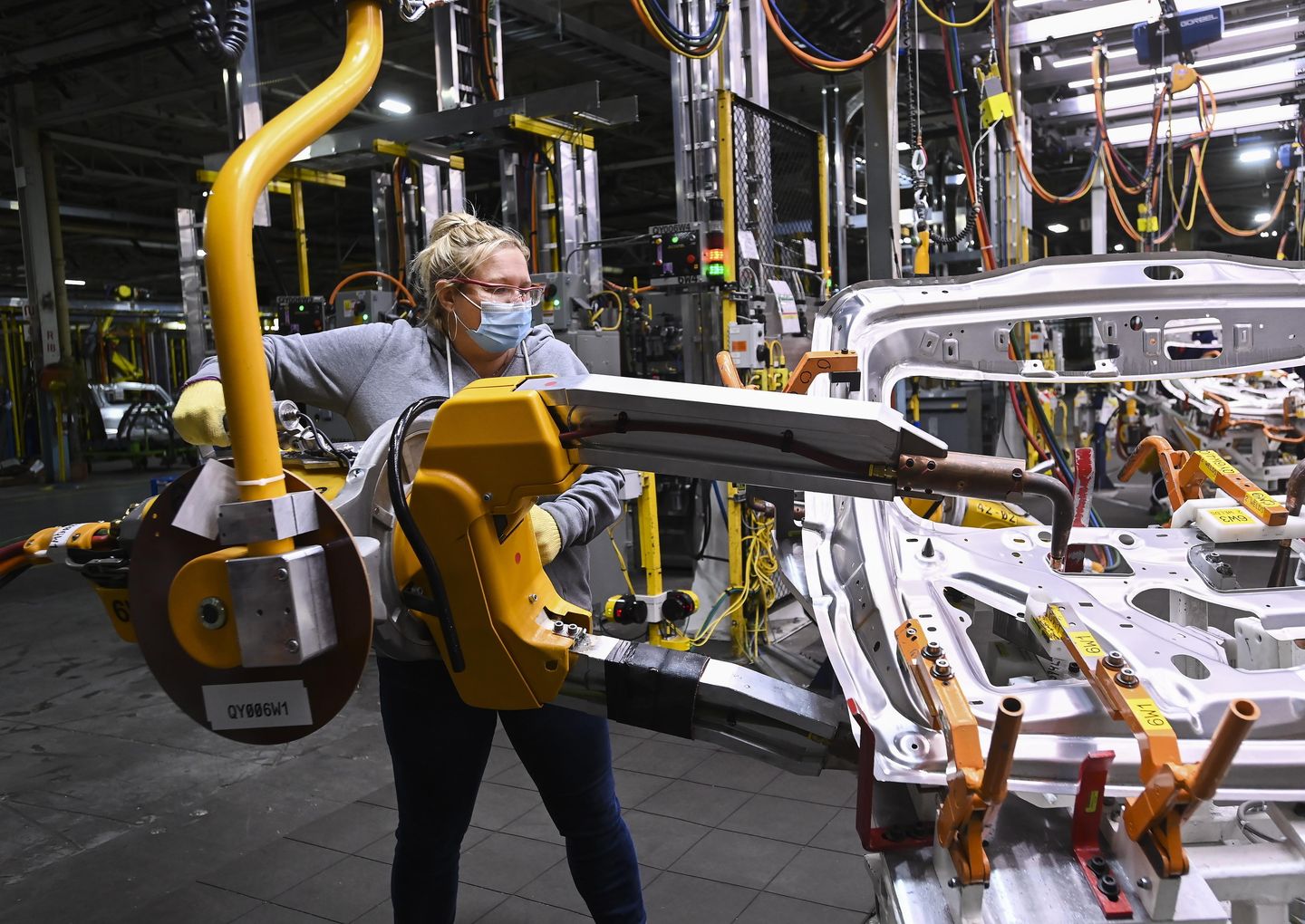
President Trump said Wednesday he is imposing a 25% tariff on foreign-made cars and light trucks that are imported to the U.S.
The decision is an attempt to spur production in U.S.-based factories that employ American workers. The president said the tariffs would take effect on April 2 and stay in place for the rest of his term.
“This will continue to spur growth like you haven’t seen before,” Mr. Trump said in the Oval Office. “It’s off to the races. I think our automobile business will flourish like it’s never flourished before.”
Wall Street traders and companies are skittish about higher costs along the supply chain and potentially higher consumer prices.
But Mr. Trump said too many cars were being built in Canada, Mexico and other places. He praised companies like Honda, which opened a new plant in Indiana and will produce cars that won’t be subject to the duties.
“If you build your car in the United States, there is no tariff,” Mr. Trump said.
Mr. Trump’s decision to impose sector-specific tariffs on automobiles could hit major German automakers hard, especially ones that don’t have much of a U.S. manufacturing footprint.
Earlier this month, German automaker Audi, a luxury arm of Volkswagen, said it is considering whether to move production into the U.S. or raise prices as it braces for the impact of Mr. Trump’s tariffs.
The president says his approach is simple: Companies that make their products in America won’t get taxed, while those who try to send goods into the U.S. will face the kind of barriers that U.S. goods encounter when they’re sent to global markets.
Canadian Prime Minister Mark Carney said Wednesday his country will look inward, too.
“Auto parts cross the Canada-U.S. border six times on average before final assembly. In a trade crisis, that’s a vulnerability,” he said on X. “It’s time to build more cars right here at home with an All-In-Canada auto manufacturing network.”
The Dow Jones Industrial Average and other major indexes closed in negative territory Wednesday after announcement of the new tariffs. Shares of Tesla, which is run by billionaire Trump ally Elon Musk, fell about 6% upon news of the tariffs and data around sluggish sales in Europe.
Mr. Trump’s car announcement comes ahead of his April 2 deadline for announcing “reciprocal” tariff numbers on countries that tax U.S. goods.
“This is the beginning of liberation day in America,” Mr. Trump said.
Tariffs are a tax or duty paid by importers on the goods they bring in from foreign markets. Mr. Trump says tariffs are a great way to force companies to return to America or keep their operations in the U.S., employ American workers and create revenue to fund domestic programs.
The auto tariffs add to a bevy of similar trade moves since he took office in January. Mr. Trump imposed new tariffs of 20% on Chinese goods and a 25% levy on steel and aluminum imports, and he has threatened 25% tariffs on Canada and Mexico but has exempted most goods for now.
The president said there will be upcoming tariffs on lumber.
His threat to impose reciprocal tariffs may force other countries to make concessions. Mr. Trump, however, said late Tuesday that he might take it easy on some tariff targets.
“It’ll be, in many cases, less than the tariff that they’ve been charging us for decades,” Mr. Trump said.
In many cases, U.S. companies will pay the levies, though Mr. Trump frequently characterizes the tariffs as payments from foreign entities.
The president said the auto-tariff program would be sophisticated enough to distinguish between cars completely made outside the U.S. and those with only some U.S.-made parts.
“We’re gonna have very strong policing. If parts are made in America, and the car isn’t, those parts aren’t going to be taxed,” Mr. Trump said. “For the most part, I think it’s going to lead cars to be made in one location.”






![Trump's Admin Guts Another ‘Rogue Government Agency with Zero Accountability’ [WATCH]](https://www.right2024.com/wp-content/uploads/2025/03/Trumps-Admin-Guts-Another-‘Rogue-Government-Agency-with-Zero-Accountability-350x250.jpg)
![‘We All Owe Him (Elon) a Huge Debt of Gratitude’ [WATCH]](https://www.right2024.com/wp-content/uploads/2025/03/‘We-All-Owe-Him-Elon-a-Huge-Debt-of-Gratitude-350x250.jpg)









